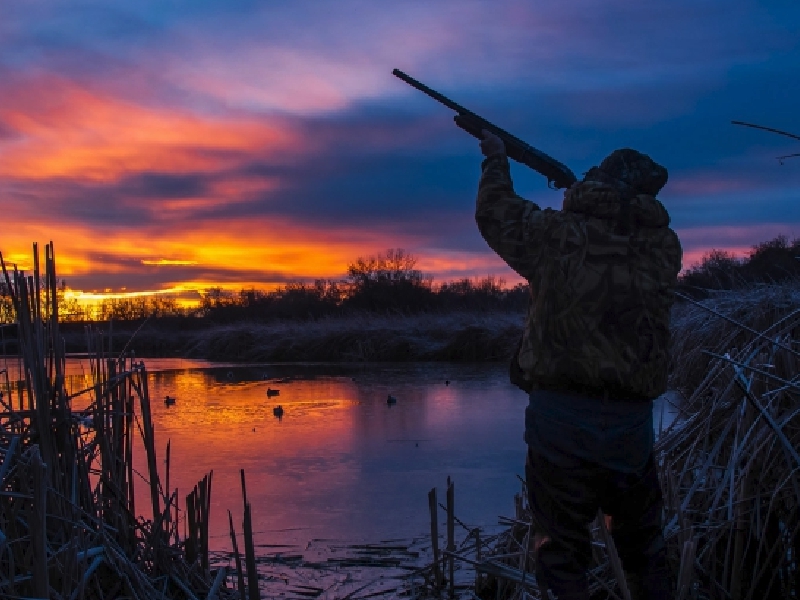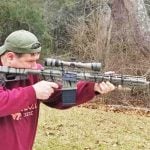The US Fish & Wildlife Service (USFWS) has published a Proposed Rule banning traditional lead ammunition and fishing tackle on 48 new hunting and fishing opportunities in National Wildlife Refuges. The rule would apply to approximately 3,000 acres of new hunting land. The Proposed Rule is now open for public comment. USFWS will accept comments received or postmarked on or before August 22, 2023.

“Best Available Science”
The USFWS Proposed Rules states that “the best available science, analyzed as part of this proposed rulemaking, indicates that lead ammunition and tackle have negative impacts on both wildlife and human health.” The problem with that statement is that USFWS does not support that claim with even one specific study or data set.
The National Shooting Sports Foundation (NSSF) countered the claim with context and data of its own. The USFWS claim seems to come from the outspokenly anti-hunting Center for Biological Diversity, with whom the agency recently settled a lawsuit seeking a total ban on lead ammunition on federal lands. The USFWS never sought to dismiss the suit, opting instead for a settlement, which may include an agreement to implement such measures in the future.
The opposition to lead ammunition primarily stems from concerns that raptors such as bald eagles who consume the entrails of unrecovered game will be poisoned by lead fragments. Yet the bald eagle population increased 724% from 1981 to 2006. That trend continues today, and not only among bald eagles.
Environmental groups seeking a lead ammunition ban also cite a 2008 North Dakota decision to destroy food pantry venison packages due to supposed dangerous lead fragments. The flawed experiment was conducted by a board member of Peregrine Fund, whose stated goal is to ban lead ammunition. This person handpicked certain packages which were examined by a lab in Iowa.
North Dakota ordered the venison’s destruction based on the lab’s report, but the lab’s director criticized the action. “I think North Dakota is drawing the wrong conclusions. We did what they asked, but they did not take an arbitrary sample,” he said. In other words, North Dakota was manipulated by an activist who weighted the scales in his favor, then misrepresented the results.

Contrary Data
According to NSSF, there is no unbiased scientific evidence that traditional lead core ammunition adversely affects wildlife populations to an extent requiring bans or restrictions beyond those that currently exist. NSSF points out that “wildlife management policy is based on managing population impacts, not on preventing isolated instances of harm to specific individual animals in a species.” The data regarding bald eagle populations seem to reinforce this point.
The Environmental Protection Agency (EPA), rarely a friend to hunters, does not classify lead ammunition from shooting ranges, much less open country hunting, to be a threat to humans or wildlife. Furthermore, US Geological Survey data indicate that traditional ammunition accounts for only about 5% of all the lead used in the United States for any purpose. Those data demonstrate, once again, that lead bullets are not harmful to humans or animals.
Returning to the North Dakota-Iowa venison incident, the Iowa Department of Public Health (IDPH) conducted a 15-year study of Iowans’ blood lead levels. “IDPH maintains that if lead in venison were a serious health risk,” the agency concluded, “it would likely have surfaced within extensive blood lead testing since 1992 with 500,000 youths under 6 and 25,000 adults having been screened.” NSSF points out that “Iowa has never had a case of a hunter having elevated lead levels caused by consuming harvested game.” Note that the study concluded the year before this incident.
Also in 2008, the year that North Dakota destroyed the packaged venison, the US Centers for Disease Control & Prevention (CDC) conducted a study on blood lead levels of North Dakota hunters. The CDC’s results confirmed that “consuming game harvested with traditional ammunition does not pose a human health risk.”
NSSF recognizes that lead seems to be an issue for California Condors and admits that certain actions are warranted there. According to Audubon, lead is the leading killer of California Condors, though they can only cite the deaths of 30 birds between 2007 and 2017 due to lead poisoning. Audubon offers no scientific data. They do acknowledge that “lead poisoning in waterfowl is way down, but it’s still a major issue for eagles, vultures, and other raptors.” Again, no data, except for a broken link to a USFWS page. I can’t say whether that page still exists or not.

The Negative Impact of Banning Lead Ammunition
Ammunition sales generate tax revenue that serves as the primary source of wildlife conservation funding in the United States. Of the $1.6 billion apportioned to the states for wildlife conservation in 2022, $1.19 billion came from the ammunition excise tax. Hunting and fishing license fees contribute millions more.
Banning lead ammunition will force hunters and shooters to adopt more expensive steel or alloy-cored ammunition, which costs roughly 25% more. Hunting ammo is already expensive. My primary deer rifle is chambered in .35 Remington, and I just can’t afford to shoot it very often, even when I can find the ammo. I also have a deer rifle in .270 Winchester, but the .35 Remington is much better suited for my Appalachian hunting range. Not that the .270 is much cheaper. It isn’t. I would have to seriously reassess my situation were ammo costs to rise by 25%. Honestly, the increase would likely be far steeper since demand would quickly outstrip the supply of already hard-to-find steel or alloy bullets.
The result would likely be a significant drop in ammo purchases, meaning a concurrent shortfall of tax revenue designated for wildlife conservation. In effect, a ban would not only hurt hunters, but it would also hurt the wildlife that is ostensibly being protected.
We should also note that California has already banned lead ammunition. Some claim that the steel ammo now in use contributes to wildfires if it sparks when hitting rocks. I looked into that but could not find conclusive data one way or the other. The jury is still out on whether steel bullets, and even copper-jacketed bullets, cause fires. Most, if not all, of the evidence on both sides seems to be anecdotal and therefore not scientific.

Congressional Action
Two bills currently before Congress aim to prohibit the Interior Department (which oversees the USFWS) and Agriculture Department from banning lead ammunition and fishing tackle on federal lands. There are caveats regarding existing regulations and situations in which wildlife populations are clearly in decline as a result of lead contamination. But both bills require the Secretaries of the Interior and Agriculture to provide site-specific peer-reviewed data, in cooperation with state agencies, to prove those conditions. Data or pressure from activists would not suffice.
The first is H.R. 615, the Protecting Access for Hunters and Anglers Act of 2023. The bill is sponsored by Virginia Congressman Robert Wittman. A sister bill of the same name, designated S.1185, was introduced in the Senate by Montana Senator Steve Daines. H.R.615 recently cleared the House Natural Resources Committee on a bipartisan vote. S.1185 has been referred to the Committee on Environment and Public Works.
What Can You Do?
As I mentioned earlier, the comment period for the Proposed Rule closes on August 22. As with many such things, if this rule is promulgated, those who support lead ammo bans will be emboldened to push for more. You can help by intelligently commenting on the Proposed Rule and voicing your opposition. You can do that here: https://www.federalregister.gov/documents/2023/06/23/2023-13360/national-wildlife-refuge-system-2023-2024-station-specific-hunting-and-sport-fishing-regulations.
You can also contact your Congressional representative and Senators. Urge them to support H.R.615 and S.1185. If Congress passes those bills, the Proposed Rule will be stopped, assuming the president doesn’t veto it. I can’t predict how that would go.

Banning lead ammunition and fishing tackle is a solution in search of a problem. There’s no real scientific data to support such a ban. But activists rarely rely on peer-reviewed data. Even if you don’t hunt or fish, this could easily spread to target shooting. Do you want to pay significantly more for ammo? I don’t.
Make no mistake: banning lead ammo is a priority for some environmental activists. On his last day in office, Obama Administration USFWS Director Dan Ashe quietly, and unilaterally, banned lead ammo on federal land. All federal land. Audubon and other activist groups celebrated that action. Fortunately, Ashe’s successor repealed the ban as his first official act. This will not go away, but Congressional action can make it much harder to implement. Please consider calling your representatives and commenting on the USFWS’s Proposed Rule. It’s a big deal.


